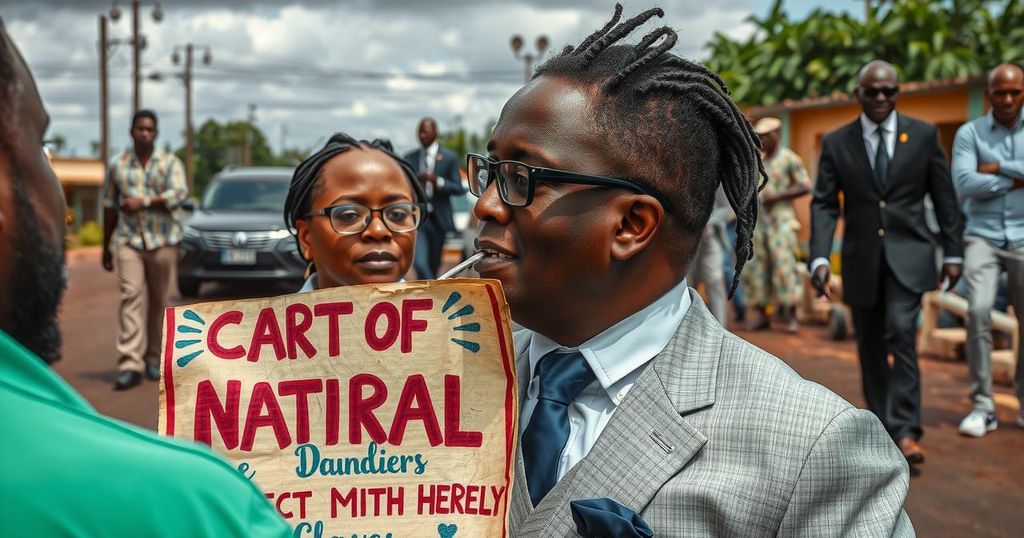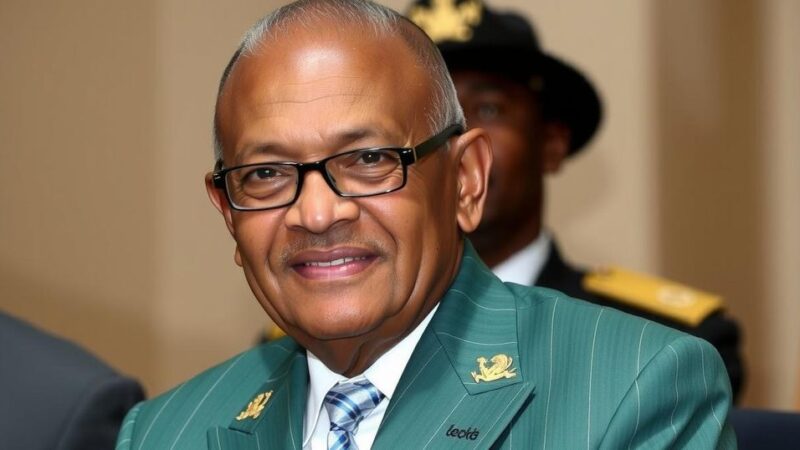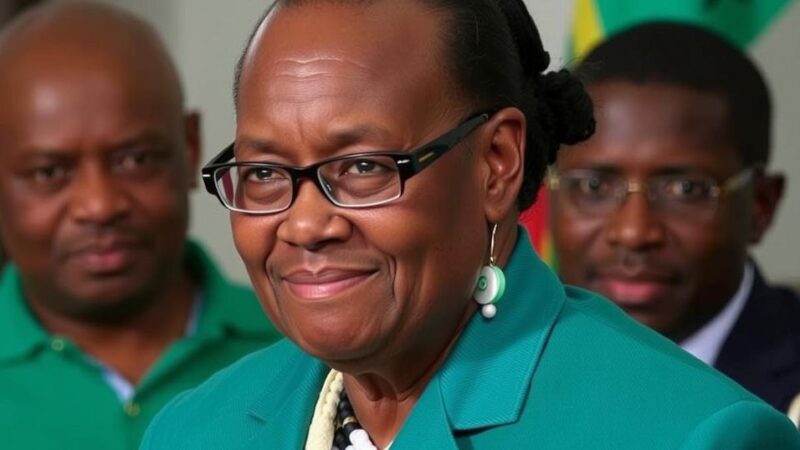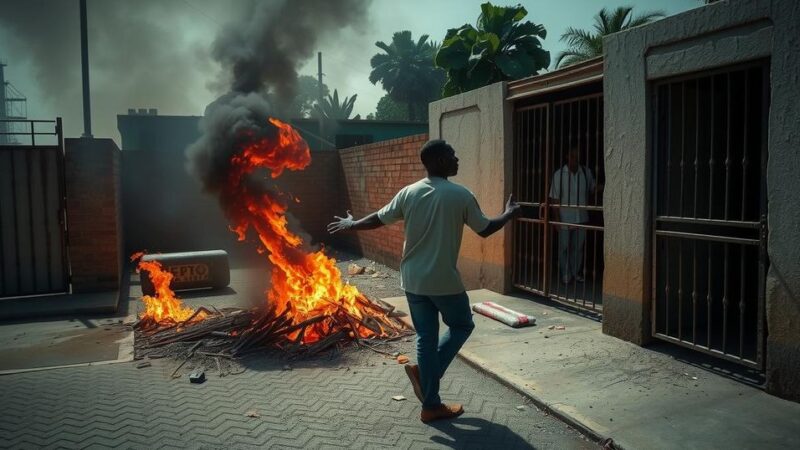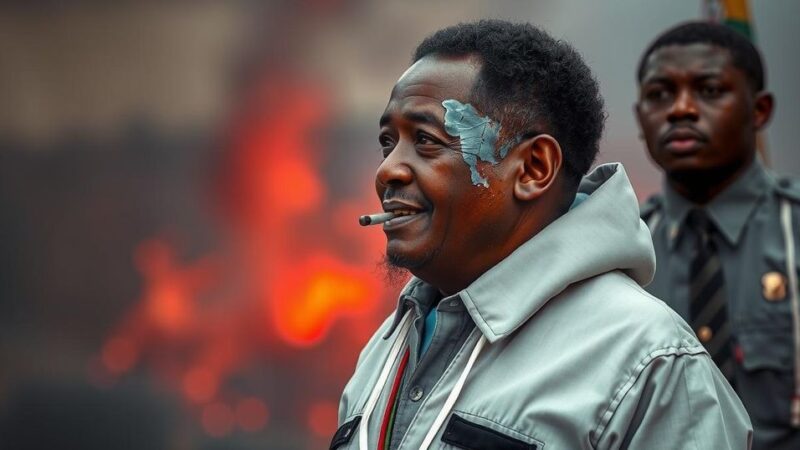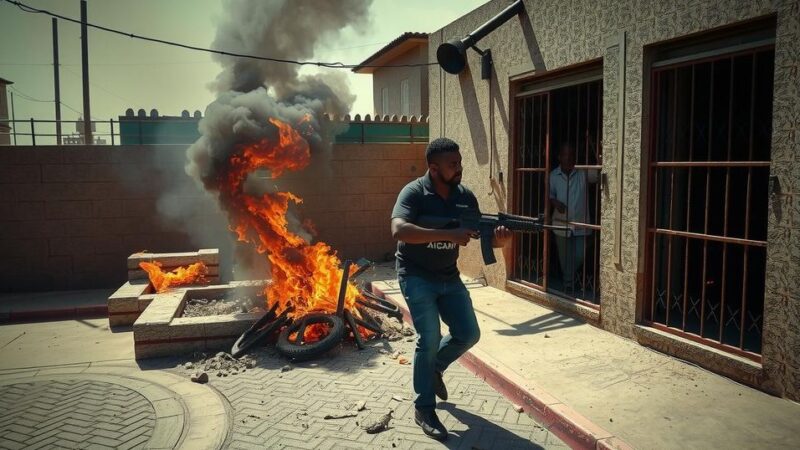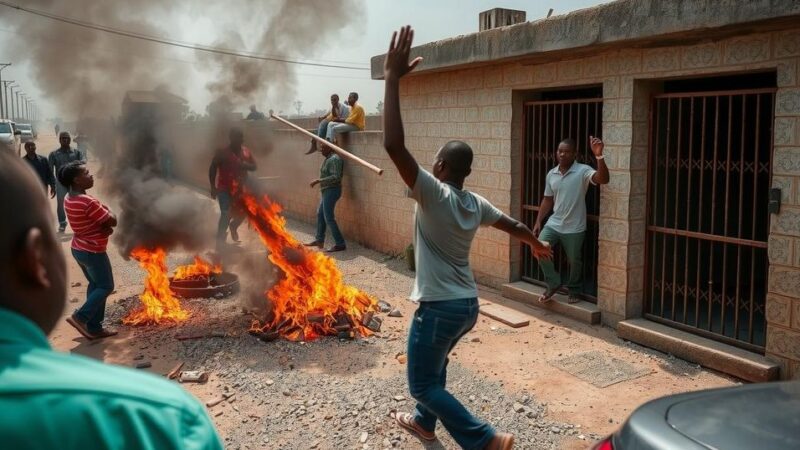At least 21 people have died in Mozambique following violent protests triggered by the Supreme Court’s confirmation of Frelimo party candidate Daniel Chapo as the election winner. Armed clashes, looting, and vandalism sparked by opposition supporters have also led to hundreds of reported violent incidents. The unrest highlights a growing discontent with electoral processes and reflects deep divisions within Mozambican society.
In the aftermath of Mozambique’s October 9 elections, violence ignited following the confirmation of ruling Frelimo party candidate Daniel Chapo as president by the country’s highest court. This unrest has resulted in the death of at least 21 individuals, including two police officers, with hundreds of reported acts of violence across the nation. The Interior Minister, Pascoal Ronda, reported that those agitating the unrest predominantly belong to the supporters of Venancio Mondlane, the losing candidate who garnered only 24% of the votes against Chapo’s 65%.
The recent clashes were characterized by looting and the destruction of property, with authorities noting significant damage, including 25 vehicles set ablaze and assaults on police stations. Following the official ruling, tensions were palpable, and protests erupted almost immediately, further fueled by social media demonstrations showing violence in major cities like Maputo and Beira. Mondlane has urged for a nationwide “shutdown” beginning Friday, amidst ongoing unrest that has already escalated the situation dramatically.
Since the initial election results released by the electoral body, more than 150 deaths attributed to violence have been reported, underscoring the severity of the post-election turmoil. The unrest highlights the deep divisions and frustrations within a nation of 34 million, where a significant population of youths feels disenfranchised after elections that many claim were marred by irregularities. The state of emergency declared in the wake of the violence remains a crucial element of this ongoing crisis.
Mozambique’s recent election results, confirmed by the Constitutional Council, have triggered widespread dissent and violence among the electorate. The ruling party’s dominance and allegations of election rigging have led to heightened tensions, particularly among supporters of the opposition, who feel marginalized. The situation escalated dramatically following the announcement of the election outcome, reflecting a crucial moment in Mozambique’s political landscape that is marked by mobilization among disenchanted youth and ongoing civil unrest.
In summary, the violence that erupted in Mozambique after the confirmation of election results has resulted in the loss of at least 21 lives and significant property damage. The unrest is predominantly fueled by the discontent of the opposition’s supporters, particularly young individuals who contest the legitimacy of the elections. The situation remains volatile, with calls for continued protests and heightened security measures from the government as the unrest continues to unfold. The aftermath of these events threatens to destabilize the already fragile political climate in the country.
Original Source: apnews.com

